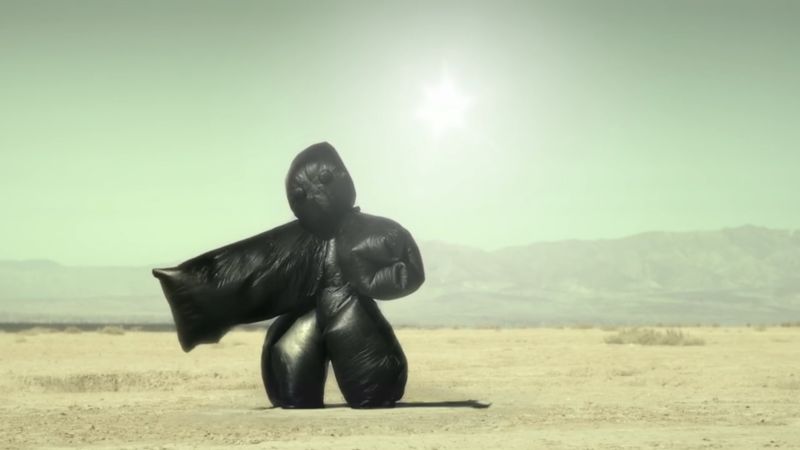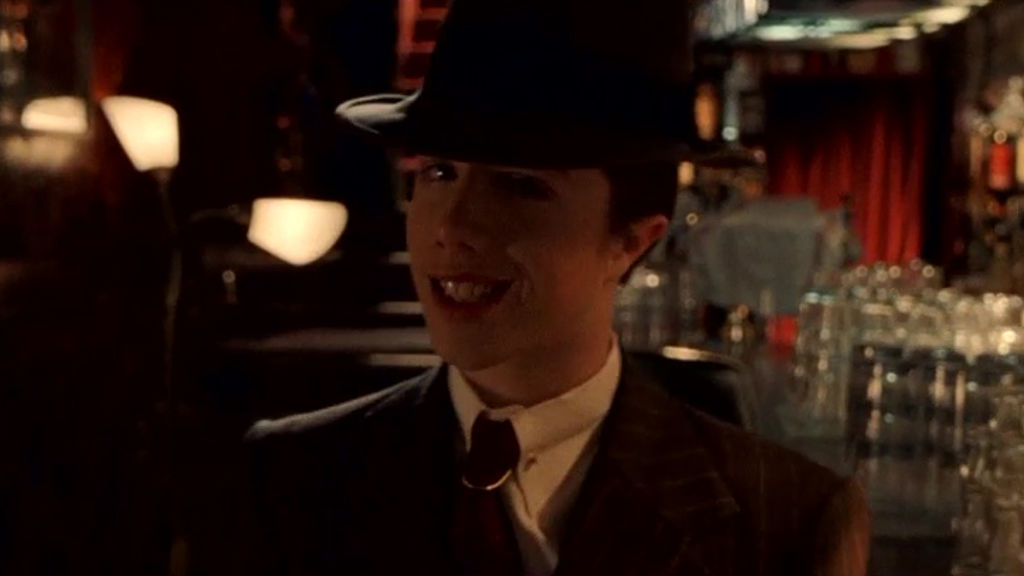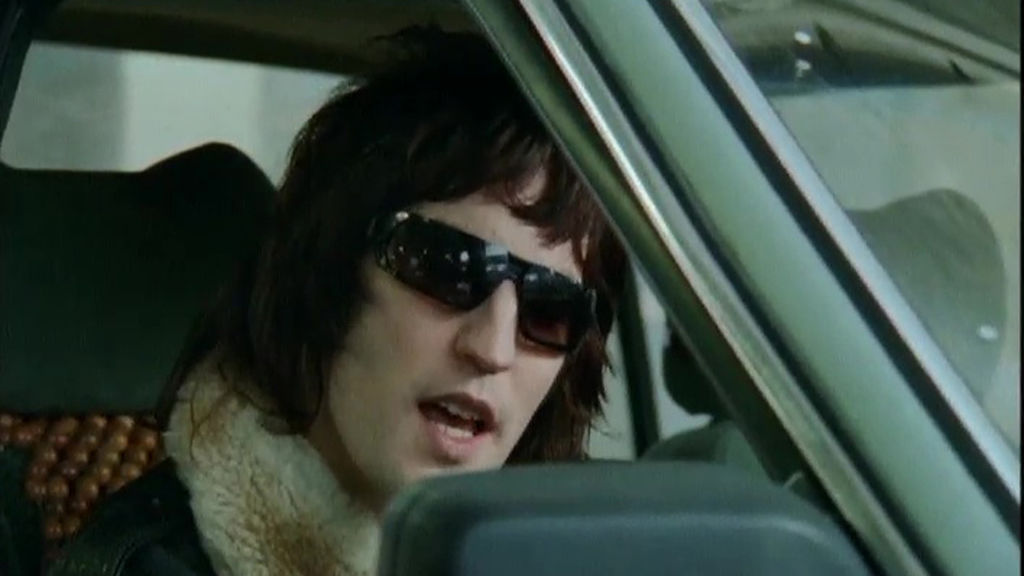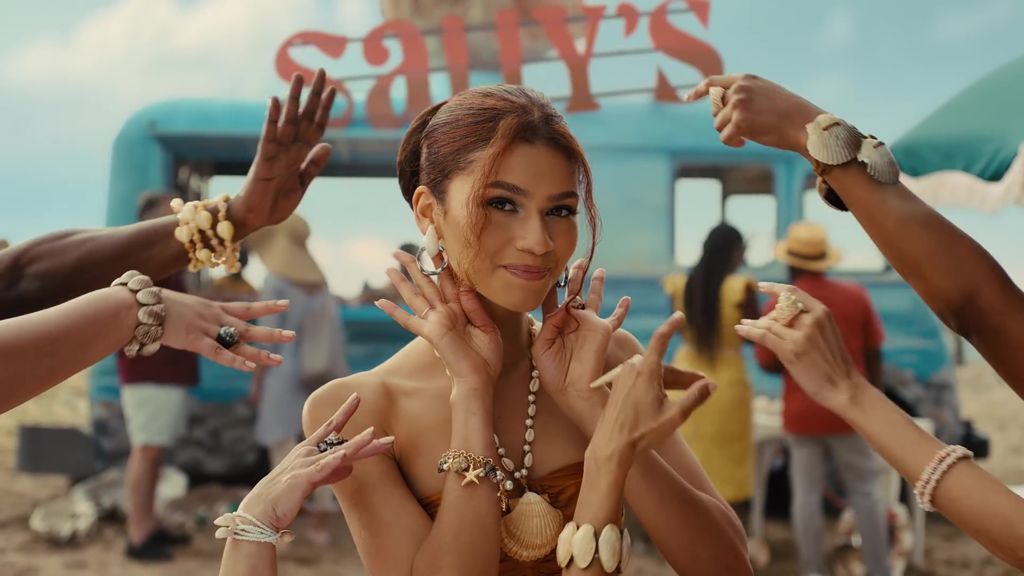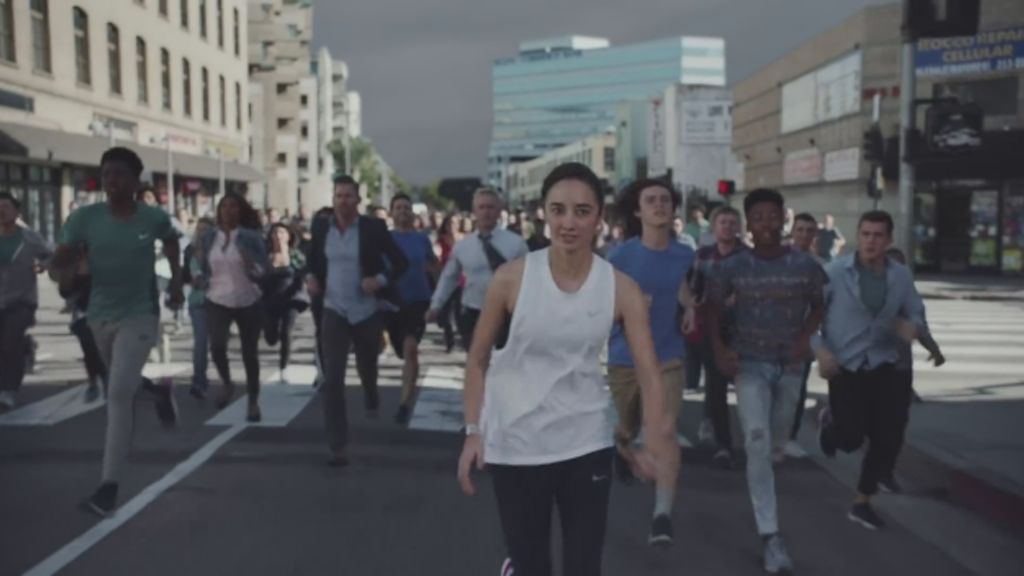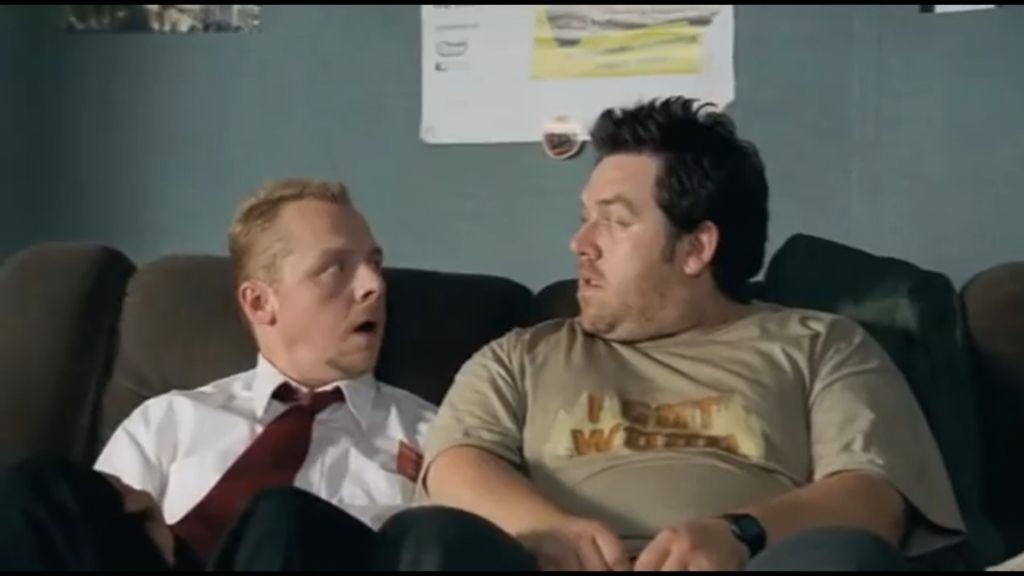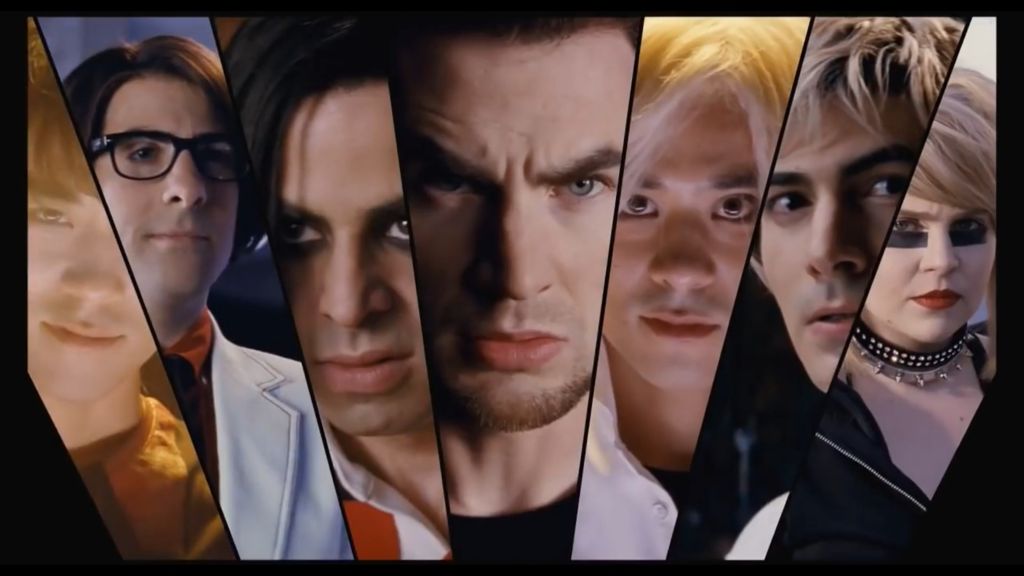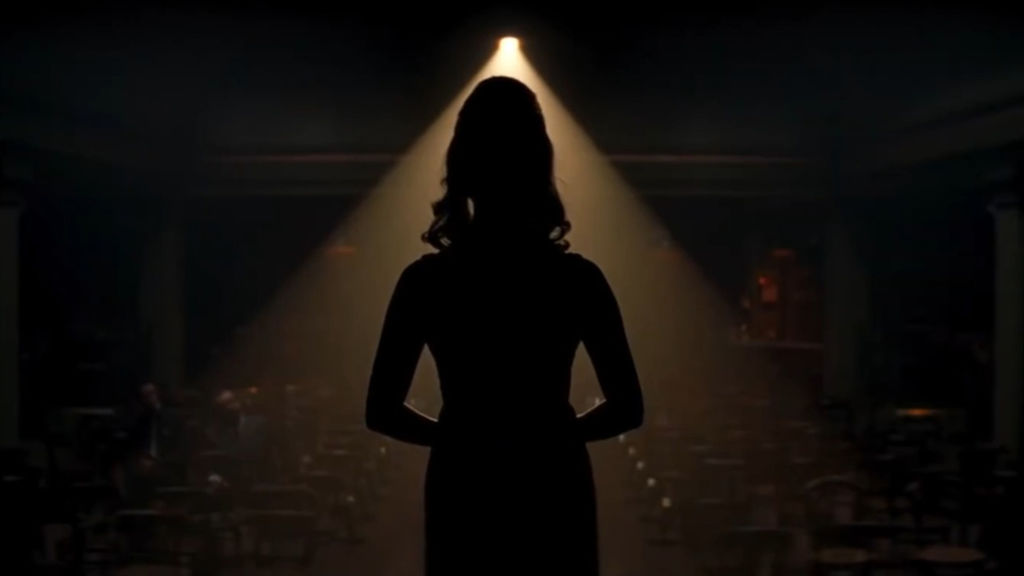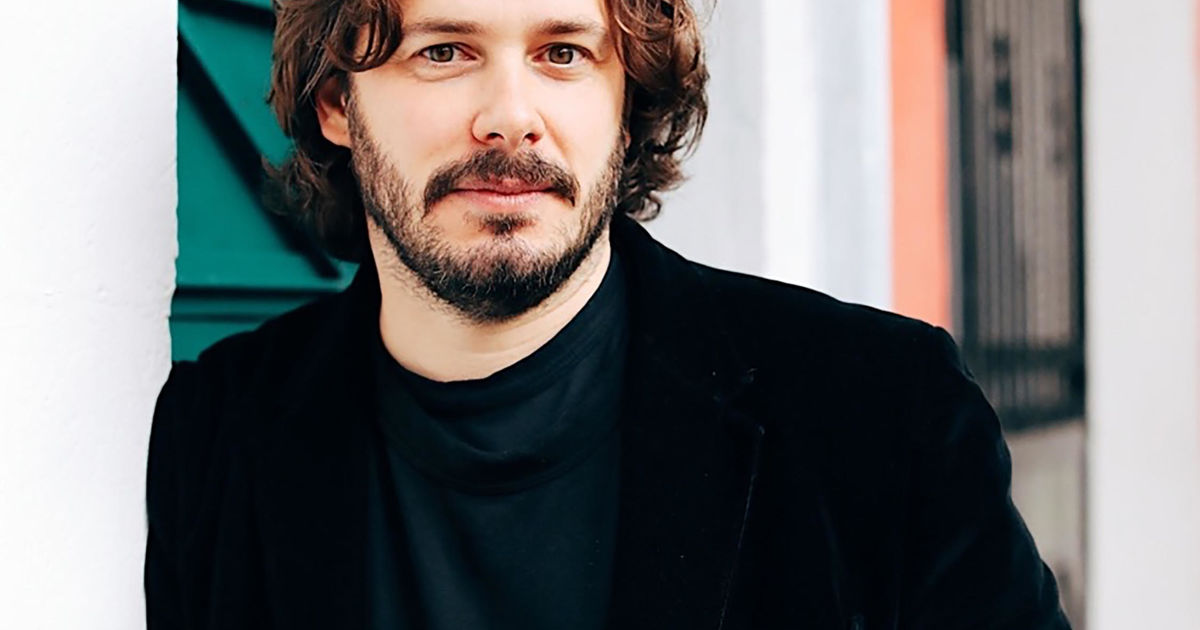The Way I See It: Edgar Wright
Spaced, Shaun Of The Dead, Scott Pilgrim, Last Night In Soho; regardless of your Edgar Wright entry-point, the frenetic filmmaker’s wit and passion makes fans of all who view his work. With a recent eyebrow-raising McDonald’s spot (shot through Moxie Pictures) an indication of more commercial work on the horizon, we caught up with Wright to chat about working with legends at an early age, the creative testbed offered by music videos, and how making yourself your own ‘dream viewer’ is the way to please those crowds.
I think most of my early memories are tied towards things on TV. Top of the Pops is a very early memory. I have this image of watching Mud doing Tiger Feet on the show, which is weird because I think I must have been six months old. I can’t imagine that I would have remembered anything on the TV at six months, but it's there!
I grew up in Swanage in Dorset. In fact, I just went back with my brother [filmmaker Oscar Wright] for his 50th and went around all the streets that we used to live in. I remember it being huge, but when you go back as an adult, it’s a different scale.
My mum and dad never dissuaded us from a career in the arts.
My mum and dad were both artists/art teachers. They never dissuaded us from a career in the arts. When I was very young, I’d say “I’m going to be a film director”, and they would say “Yes”, rather than, “have a back-up plan”. I’m not from a rich background and had no connections in the industry whatsoever, so the fact that I had parents who would actively encourage that ambition was huge. Maybe I didn’t realise it at the time, but I do now.
My brother and I were fascinated by film and animation and comics. When I was 14, my mum and dad bought us a joint birthday and Christmas present - covering one Christmas and one birthday, so four different presents in one - which was a second-hand Braun Nizo Super 8 camera. As soon as we had that, we started making films in the garden.
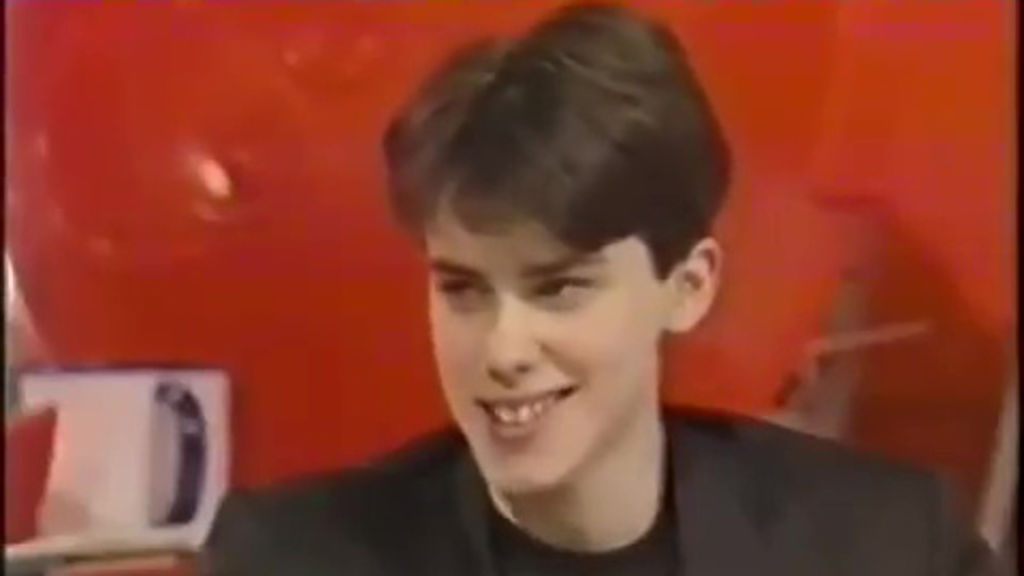
Credits
powered by
Above: Wright on 90s Saturday morning TV show Going Live, collecting a filmmaking prize.
In the late 80s, I saw an episode of Jonathan Ross’ The Incredibly Strange Film Show about Sam Raimi that showed that he went from making Super 8 comedy shorts to making The Evil Dead on 16mm. That was really the lightbulb moment for me.
I made a couple of shorts on Super 8 which I would show at lunchtime at school and charge admission. When I was 16, I went on the BBC’s [early 90s Saturday morning kids show] Going Live and won a video camera with an animation called I Want To Get Into The Movies, ironically. Once I had that, it was off to the races.
Once I had [a camera], it was off to the races.
I decided to make a 16mm version of [earlier short] A Fistful of Fingers, without really knowing who was going to pay for it. The local newspaper editor in Wells, Somerset, had just come into an inheritance, so he gave us £11,000 to make a movie. We shot on that for 21 days, then I moved to London to edit it and had to raise an additional £10,000. The finished movie cost 21 grand in total, and brought me to London.
I went off to be a researcher on Beadle’s Hot Shots. Viewers would send in their sketches and I was in charge of watching every single tape. I also had to re-edit and re-shoot a lot of them, which would be a scandal in this day and age. A lot of what was sent in was untransmittable, as it was in shot on terrible VHS tapes that they couldn’t get past broadcast standards, so I, on my own, would go out to Walthamstow or down to Plymouth and help people reshoot their sketches. At a drinks event after a studio shoot, one of the other people who had sent in a movie came up to me and said, “That Speed/On The Buses sketch looked suspiciously professional.” I just said, “I don’t know what you’re implying.”
Credits
powered by
- Agency Leo Burnett/London
- Production Company Moxie Pictures/London
- Director Edgar Wright
-
-
Unlock full credits and more with a Source + shots membership.
Credits
powered by
- Agency Leo Burnett/London
- Production Company Moxie Pictures/London
- Director Edgar Wright
- Sound 750mph
- Casting ET Casting
- Media Agency OMD/London
- Production Company Moxie Pictures/London
- Editor Final Cut/London
- Post-Production Company Framestore/London
- Audio Post Production 750mph
- Photography and Motion Production Prodigious London
- Media Agency OMD/London
- Editor Final Cut/London
- Post-Production Company Framestore/London
- Audio Post Production 750mph
- Photography and Motion Production Prodigious London
- Managing Director Dawn Laren
- Producer Doochy Moult
- Art Director Andrew Long
- Creative Gareth Butters
- Executive Producer Dawn Laren
- DP Jake Polonsky
- Production Designer Marcus Rowland
- Editor David Webb
- Editor Suzy Davis
- Production Manager Carmen Griffiths
- Chief Creative Officer Chaka Sobhani
- Executive Creative Director Mark Elwood
- Creative Director James Millers
- Creative Director: Andrew Long
- Senior Creative / Copywriter Gareth Butters
- Art Director Joe Miller
- Creative Director of Design David Allen
- Designer Jakk Breedon
- Head of Planning Tom Sussman
- Head of Account Management Sam Houlston
- Head of Project Management Jamie Teale
- Head of McDonalds TV Production Graeme Light
- Flame Darran Nicholson
- Producer Alexia Paterson
- Audio Mixer Sam Ashwell
- Head of Art Production Joseph Hodges
- Photographer Tom van Schelven
- Colorist Steffan Perry
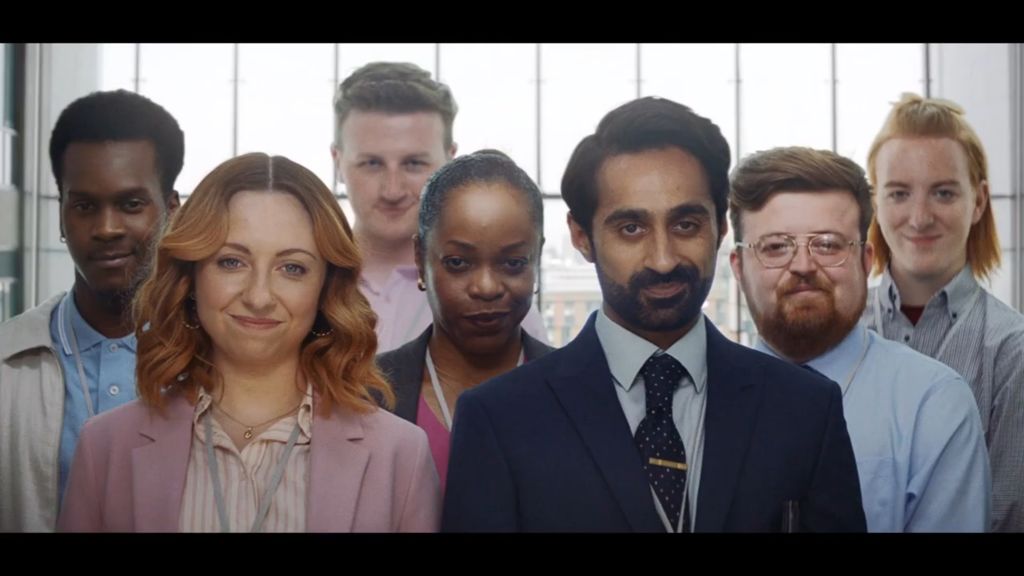
Credits
powered by
- Agency Leo Burnett/London
- Production Company Moxie Pictures/London
- Director Edgar Wright
- Sound 750mph
- Casting ET Casting
- Media Agency OMD/London
- Production Company Moxie Pictures/London
- Editor Final Cut/London
- Post-Production Company Framestore/London
- Audio Post Production 750mph
- Photography and Motion Production Prodigious London
- Media Agency OMD/London
- Editor Final Cut/London
- Post-Production Company Framestore/London
- Audio Post Production 750mph
- Photography and Motion Production Prodigious London
- Managing Director Dawn Laren
- Producer Doochy Moult
- Art Director Andrew Long
- Creative Gareth Butters
- Executive Producer Dawn Laren
- DP Jake Polonsky
- Production Designer Marcus Rowland
- Editor David Webb
- Editor Suzy Davis
- Production Manager Carmen Griffiths
- Chief Creative Officer Chaka Sobhani
- Executive Creative Director Mark Elwood
- Creative Director James Millers
- Creative Director: Andrew Long
- Senior Creative / Copywriter Gareth Butters
- Art Director Joe Miller
- Creative Director of Design David Allen
- Designer Jakk Breedon
- Head of Planning Tom Sussman
- Head of Account Management Sam Houlston
- Head of Project Management Jamie Teale
- Head of McDonalds TV Production Graeme Light
- Flame Darran Nicholson
- Producer Alexia Paterson
- Audio Mixer Sam Ashwell
- Head of Art Production Joseph Hodges
- Photographer Tom van Schelven
- Colorist Steffan Perry
Above: Wright's latest work, for McDonald's.
I’d become friendly with Matt Lucas and David Walliams as they were starting out. They were doing the stand-up circuit and got a sketch show at the Paramount Comedy Channel called Mash and Peas. They said to the producer, Myfanwy Moore, “our friend is a director, he’s got a feature film in the West End right now” [A Fistful Of Fingers was shown in the legendary independent Prince Charles Cinema], so I got the gig.
A lot of my film education was watching things and trying to ape them without the same equipment. You end up trying to figure out a low-budget way of doing things. I always had in my head the coverage I needed and the way it would edit together. When I was making amateur films I would edit them as well, so I would have a good sense of how things cut together.
I didn’t have a mentor in the sense of one person looking out for me. I just learnt on the job; learning through crew members the right and wrong way to do things. I didn’t go to film school. I think of the period when I was doing my first TV work as going to college.
I didn’t go to film school. I think of the period when I was doing my first TV work as going to college.
When I’d been my own boss, I was camera operator and editor. Having to delegate that stuff is hard; you have to find somebody who can read your mind. It’s about communicating what you want it to look like, but at the time I didn’t have the training or the terminology. I didn’t even do storyboards. With all of the TV stuff I did, I never really had time to do storyboards.
I did an entire series of Alexei Sayle's Merry-Go-Round, which was six half-hours. I remember Alexei saying to me, “Edgar, we need to get you some adult clothes.” I was wearing a Dr Seuss Cat in the Hat sweatshirt from Camden Market, like one of those long-sleeved ones that ravers wear. My youthful look was one of the reasons I grew a beard.
The fact that I was a youngster directing TV through a path that wasn’t nepotism seemed to baffle some of the crew. Normally it would be, “Oh, he’s the Director General’s kid”, “Well, that makes sense.” But because I wasn’t anybody’s kid, they were, like, “Why is this 23-year-old directing us? He hasn’t even been to film school.” It was a real trial by fire.
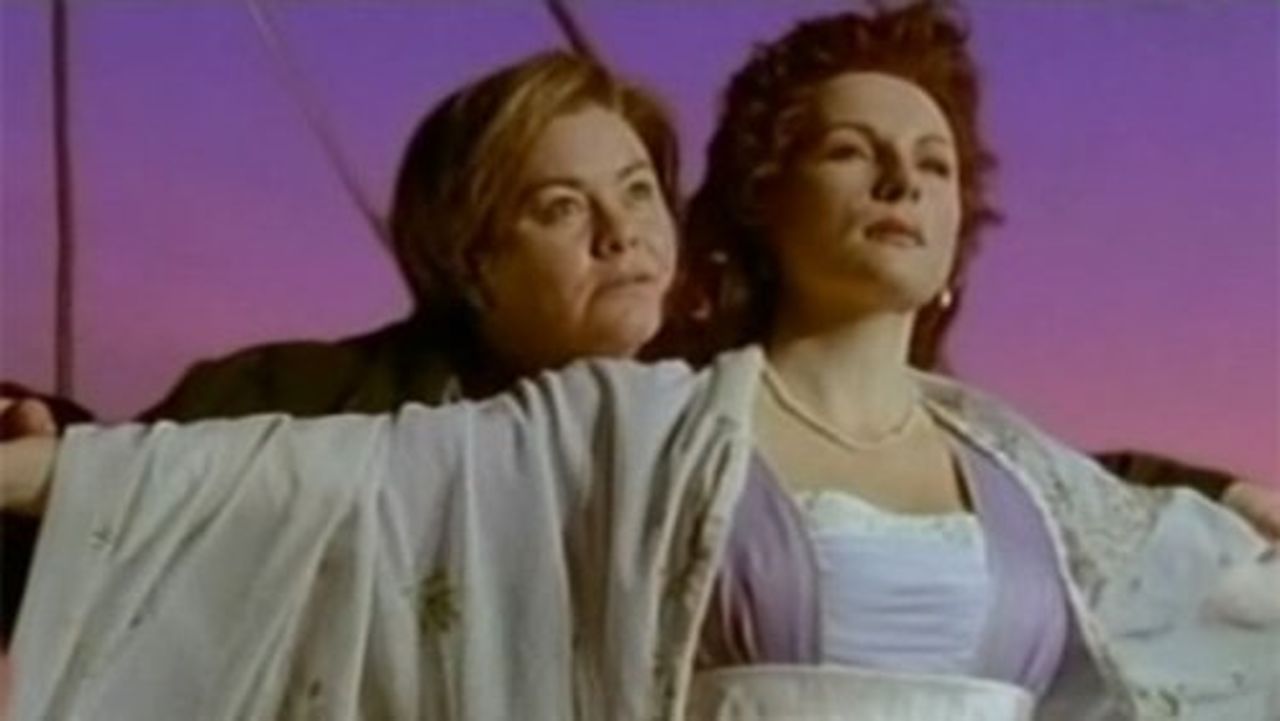
Above: An image from Dawn French and Jennifer Saunders' iconic Titanic parody, helmed by Wright.
I shot French and Saunders’ Christmas Special, the Titanic one. That one hits hard when I mention it to people. Even Christopher Nolan said, “You did the Titanic Christmas Special for French and Saunders? How?!”. I was 24. Fucking crazy.
I directed that special with legends like Joanna Lumley, French and Saunders, Helen Mirren... It was just ridiculous. Doing [cult sitcom] Spaced the next year was a bit like a homecoming.
Just pre- and post-Spaced and before Shaun of the Dead, I did some adverts and quite a few music videos. I got the job on most of the adverts because the creatives knew what Spaced was. I remember once I was up for a commercial and the brief said “in the style of Spaced”. I did not get the job.
I remember once I was up for a commercial and the brief said “in the style of Spaced”. I did not get the job.
Many of the music videos I directed, I used as an opportunity to try new things out. A video I made in 2002 for The Bluetones [After Hours] was a Bugsy Malone pastiche, all done in one shot. One of the reasons I did it was because I knew that in Shaun of the Dead there was an idea for a scene that was all-in-one Steadicam shot, when Shaun walked to the shops and back. In a way, I’d contrive to write something into a music video treatment, or an advert treatment, that could be a dry run.
Similarly, the video I did for Mint Royale in 2002 with Noel Fielding [Blue Song] is basically a dry-run for Baby Driver. I remember years later, when Scott Pilgrim came out, I did a talk at the LA Film Festival which J J Abrams was moderating. Along with the film, they showed some other stuff that I’d done, including the Mint Royale video. By this point, I’d started actively developing Baby Driver, and whilst the video was playing, JJ lent over to me and said “This would actually make a great movie.”, to which I replied, "I'm way ahead of you...".
The Bluetones – After Hours
Mint Royale – Blue Song
Above: Music videos for The Bluetones, Mint Royale and Beck that later influenced Wright's movies.
You learn things from music videos. Something that helped on the Beck video I did [Colors] or the Squarespace Superbowl commercial, or even Last Night in Soho, was getting the Steadicam operator to come to rehearsals. If you don’t have your Steadicam operator at the rehearsal, you will have to start all over again on the day of shooting. The money that you pay to get the operator to be at the rehearsal is going to save you so much time on the day. That was a lesson learnt from doing things on music videos 20 years ago, where I’d treat the operator like one of the performers.
When there’s a clever idea [...] you’ll probably find that it has been tested in an advert first.
I think advertising sometimes affords the privilege to try out something cutting-edge. There are a lot of brilliant directors who try things out in adverts or music videos for the first time. I was reading a great article the other day about the evolution of bullet time, which most people associate with The Matrix. Of course, it was in music videos and adverts before, significantly Michel Gondry’s Smirnoff ad. When there’s a clever idea, in terms of special effects or a way of shooting something, you’ll probably find that it has been tested in an advert first.
I never felt like I did as many commercials as I could have after Shaun of the Dead. There was a long period where I didn’t do a commercial, between 2003 and 2018. The first ad I did when I came back was for Nike in 2018. Part of the reason I stepped away was that a lot of the time I’d get sent things that were just ripping off my own films.
Squarespace – Sally's Seashells (Extended)
Nike – Choose Go
Above: Recent commerical work from Wright, including Squarespace's Super Bowl offering.
The three most recent commercials I’ve done - Nike, Squarespace, and the Mcdonald’s one that’s just been released - were all great premises. That’s the thing I’m led by; cool ideas where you get to mix with crew that you like or that you haven’t yet worked with. The McDonalds’ ad I did over the summer with Leo Burnett was great. As soon as I read the script I was like, “Oh, I love this song, I love this premise. This will be a lot of fun.”
I’ve often thought if I wasn’t doing directing, I’d quite like to edit, if I were allowed to stay in the world of film. I also like the idea of being like a film historian or something. I’ve recently become a Governor of the BFI, and seeing the National Archives is overwhelming. As a fan of film and film history, that’s something that’s always fascinated me. I guess because my parents were teachers, the idea of doing something like that eventually would be interesting.
Surely if any film is successful, it’s manipulating the viewer in some way.
Outside of film, it would still have to be something art-related. I can’t think of anything that I would be good at in a practical way. I’d draw for The Beano or something.
Making audiences laugh or cry is hard. They feel themselves being manipulated. I think it’s funny when people use the word “manipulative” as a negative term, because you think, well, isn’t all film manipulative in some way? Surely if any film is successful, it’s manipulating its viewer to a degree.
Shaun of the Dead - Trailer
Scott Pilgrim Vs. The World - Trailer
Last Night in Soho - Trailer
Above: Trailers for some of Wright's feature films, including Shaun Of The Dead, Scott Pilgrim vs. The World and Last Night In Soho.
There is an incredible amount of hard work to make things seem effortless. In a lot of the things that I’ve done that maybe seem effortless, like Spaced or Scott Pilgrim or any of the films with Nick and Simon, there are always enormous amounts of moving parts and hard work from so many people.
Whether it’s an advert or a music video or a TV show or a movie, you are your own dream viewer
My ambition is to keep doing what I’m doing. I don’t take it for granted at all, and as the business keeps changing, I hope I never take it for granted. The work is the thing. That sounds like stating the obvious, but the glamour of the business or the idea of Hollywood itself is an illusion. I always find it funny that the Oscars is essentially in a shopping mall. They have the big velvet curtains, but if you pull them back, there’s the Cinnabon behind.
At the end of the day, the reality is the punter watching a film on a big screen. Whether it’s an advert or a music video or a TV show or a movie, you are your own dream viewer, so you want to make the thing that, if you hadn’t made it, you wish you’d had. I never want to stop being an audience member.
)

